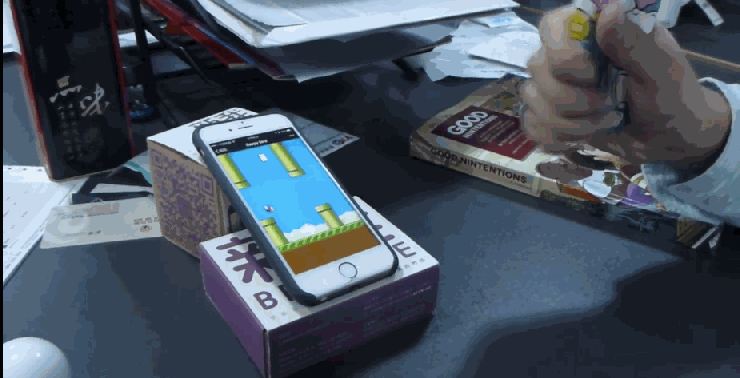How the internet is making hardware startups as fast as software in Shenzhen

Editor’s note: The following is an excerpt from ‘Created’ in China: Shenzhen is making hardware like Silicon Valley makes apps, written by An Xiao Mina and originally published on Fusion.
China is amidst a massive transition from a country primarily of manufacturers to one of makers. Lei Gao is part of this new generation that uses the internet’s agility to augment what the city has to offer. Within days, he had what he needed to experiment with his idea. It took just 10 yuan—about 1.50 USD—and an account on Taobao, an eBay-like e-commerce site run by Chinese tech giant Alibaba, to purchase an exercise gripper shipped from Fujian, a province about a nine hour drive up the coast. Alibaba’s efficient payment and shipping system saved him a trip, and he already had the other parts and pieces he needed from previous projects. After the gripper arrived, he and his team tinkered with code and a Bluetooth trigger, and they created a prototype: a “smart gripper” to interact with your phone. It was perfect for games like Flappy Bird.
…
The critical moment arrived: they listed the Bluetooth gripper onto hi.taobao.com, one of a few popular crowdfunding sites which bear semblance to Kickstarter and Indiegogo. Nearly 400 buyers across China took to the idea—a $30 exercise toy that grown-ups can play with—and Imlab raised over 100,000 Chinese yuan, or about $16,000 to seed the product. With the idea validated, they could quickly and affordably plug into a factory elsewhere in the city and begin production and shipping while seeking seed money.
Just as important as the investment, Imlab now had a fan base excited to give feedback. They set up a WeChat group, helmed by community manager Tina Yang, and over a hundred users joined from cities as far away as Beijing and Shanghai. Spread across China, these young fans offered more diverse feedback than Imlab’s fellow technologists, and they were happy to share the toy with their friends.
As new models came out of Imlab’s factory in Shenzhen, they placed them in specific online stores on Taobao. Each virtual store functioned like an independent stall in Huaqiangbei’s many markets, with its own marketing strategies and audience. Thanks to analytics provided by Taobao, the stores kept Imlab posted on how quickly the products sold, so they could produce and ship more to meet demand, or make tweaks as needed.